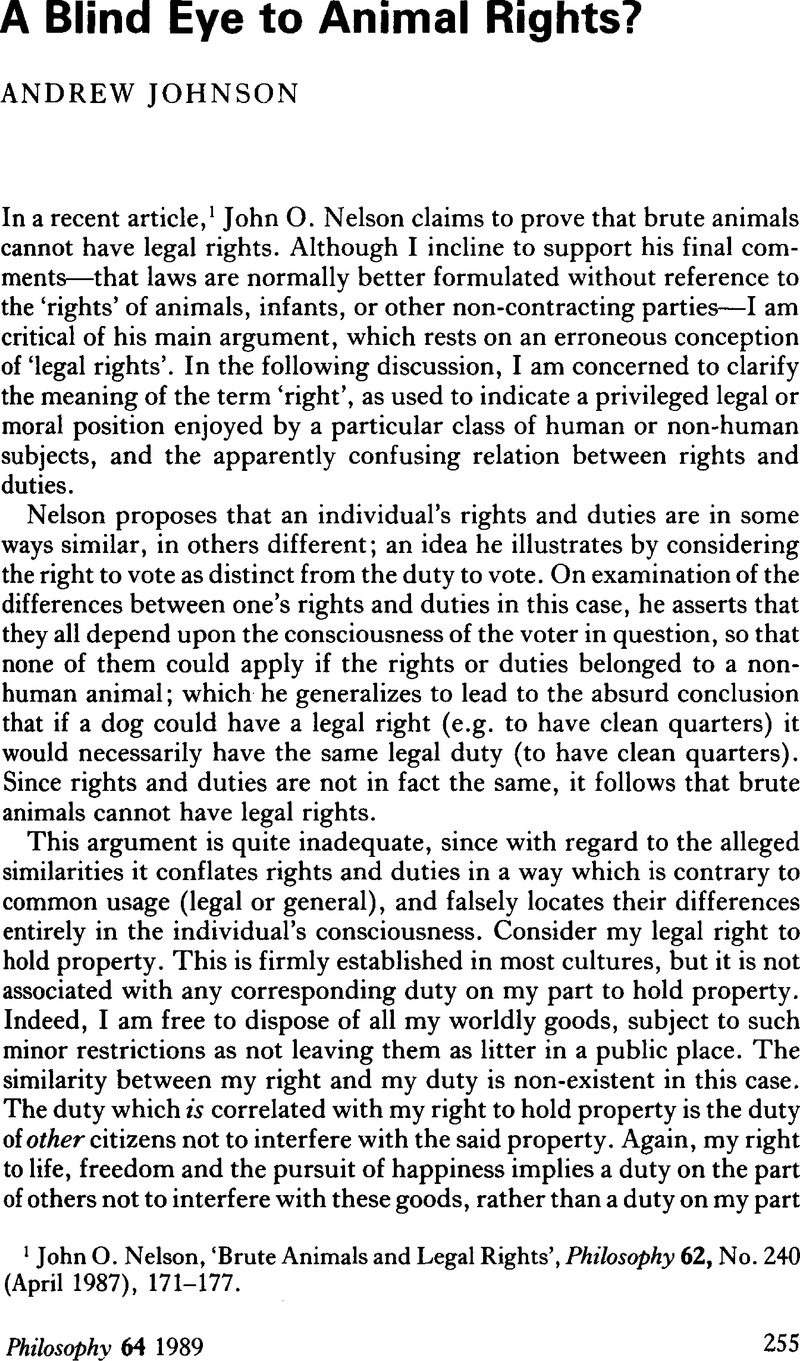Article contents
A Blind Eye to Animal Rights?
Published online by Cambridge University Press: 30 January 2009
Abstract

- Type
- Discussion
- Information
- Copyright
- Copyright © The Royal Institute of Philosophy 1989
References
1 Nelson, John O., ‘Brute Animals and Legal Rights’, Philosophy 62, No. 240 (04 1987), 171–177.CrossRefGoogle Scholar
2 Kant, Immanuel, Lectures on Ethics, trans. Infield, Louis (London: Methuen, 1930), 240.Google Scholar
3 Midgley, Mary, Animals and Why They Matter (Harmondsworth: Penguin, 1983), 63.Google Scholar
4 Sophocles, , Antigone, trans. Watling, E. F. in The Theban Plays (Harmondsworth: Penguin, 1947), 138.Google Scholar
5 The ‘objectification’ of moral values is discussed by Mackie, J. L. in Ethics: Inventing Right and Wrong (Harmondsworth: Penguin, 1977), 15–48.Google Scholar
6 Rousseau, J. J., Discourse on the Origin of Inequality (London: Dent, Everyman edn. of The Social Contract and Discourses), part 2, 225.Google Scholar
7 This implies that there is something odd about duties to oneself, e.g. the duty not to commit suicide. I accept this implication: surely the idea of duties to onseself is incoherent, and the expression really refers either to social duties or to duties towards God. The latter are a special case, which I shall deliberately ignore in the present dicussion.
8 Clark, Stephen R. L., The Moral Status of Animals (Oxford: Clarendon Press, 1977), 29.Google Scholar
9 Aristotle, , Nicomachean Ethics, VIII. 11, trans. Ross, W. D. (Oxford University Press 1925), 212.Google Scholar
- 1
- Cited by


